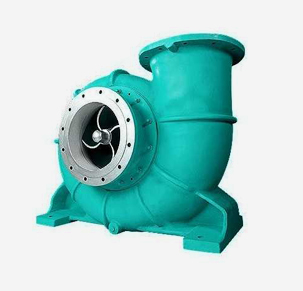Maltese
- Afrikaans
- Albanian
- Amharic
- Arabic
- Armenian
- Azerbaijani
- Basque
- Belarusian
- Bengali
- Bosnian
- Bulgarian
- Catalan
- Cebuano
- Corsican
- Croatian
- Czech
- Danish
- Dutch
- English
- Esperanto
- Estonian
- Finnish
- French
- Frisian
- Galician
- Georgian
- German
- Greek
- Gujarati
- Haitian Creole
- hausa
- hawaiian
- Hebrew
- Hindi
- Miao
- Hungarian
- Icelandic
- igbo
- Indonesian
- irish
- Italian
- Japanese
- Javanese
- Kannada
- kazakh
- Khmer
- Rwandese
- Korean
- Kurdish
- Kyrgyz
- Lao
- Latin
- Latvian
- Lithuanian
- Luxembourgish
- Macedonian
- Malgashi
- Malay
- Malayalam
- Maltese
- Maori
- Marathi
- Mongolian
- Myanmar
- Nepali
- Norwegian
- Norwegian
- Occitan
- Pashto
- Persian
- Polish
- Portuguese
- Punjabi
- Romanian
- Russian
- Samoan
- Scottish Gaelic
- Serbian
- Sesotho
- Shona
- Sindhi
- Sinhala
- Slovak
- Slovenian
- Somali
- Spanish
- Sundanese
- Swahili
- Swedish
- Tagalog
- Tajik
- Tamil
- Tatar
- Telugu
- Thai
- Turkish
- Turkmen
- Ukrainian
- Urdu
- Uighur
- Uzbek
- Vietnamese
- Welsh
- Bantu
- Yiddish
- Yoruba
- Zulu
Telephone: +86 13120555503
Email: frank@cypump.com
Nov . 22, 2024 15:03 Back to list
submersible wastewater pump
Exploring the Importance of Submersible Wastewater Pumps
Submersible wastewater pumps play a critical role in modern sanitation and waste management systems. These specialized pumps are designed to operate when fully submerged in liquid, making them ideal for a range of applications, from residential sewage systems to industrial waste treatment facilities. Their design allows them to efficiently move wastewater to treatment plants or disposal sites, ensuring that communities remain healthy and environmentally safe.
One of the primary advantages of submersible pumps is their ability to handle solids, which is essential in wastewater management. Unlike standard pumps, which may clog when confronted with debris, submersible pumps have impellers that can handle a mixture of solids and liquids. This capability reduces maintenance needs and downtime, making them a cost-effective solution for municipalities and businesses alike.
Moreover, submersible wastewater pumps are engineered for high efficiency and energy savings
. They often feature variable speed motors that adjust the pump's output based on demand, minimizing energy consumption while maximizing performance. In an age where energy efficiency is a priority, these pumps contribute to lower operational costs and reduced carbon footprints.submersible wastewater pump

The installation of submersible pumps is another of their strong suits. They can be placed directly in the sewage pit or tank, which reduces the need for extensive infrastructure and surface noise typically associated with above-ground pumps. This compact design not only saves space but also minimizes the impact on the surrounding environment, making it a preferred choice in residential areas.
In terms of safety, submersible wastewater pumps are designed with multiple seals and protective features to prevent leaks and electrical hazards, which are major concerns when dealing with potentially toxic waste. Regular maintenance and monitoring can ensure these systems operate effectively over time, safeguarding both public health and the environment.
In conclusion, submersible wastewater pumps are indispensable in the realm of waste management. Their ability to handle solids, efficiency in operation, ease of installation, and safety features make them a vital component in maintaining sanitary conditions in both urban and rural settings. As technology continues to advance, these pumps will likely evolve, further enhancing their capabilities and importance in sustainable waste management solutions.
-
China Small Slurry Pump Manufacturer - High Efficiency Small Centrifugal Slurry Pumps for Mining & Industry
NewsJun.24,2025
-
Custom Drilling Mud and Slurry Pump Supplier - High Efficiency, Tailored Solutions
NewsJun.10,2025
-
Supply Vertical Submersible Sewage Pump High-Efficiency WQ/QW Pumps Supplier
NewsJun.10,2025
-
Premium Sewage Ejection System & Pumps Efficient Waste Removal
NewsJun.09,2025
-
Premium Wholesale Slurry Pump Impellers Durable & Efficient Slurry Handling
NewsJun.09,2025
-
Top Sewage Pump Companies Durable Industrial Solutions for Efficiency
NewsJun.09,2025










